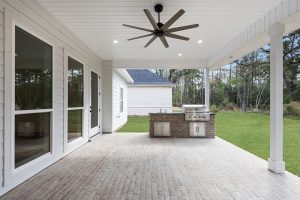What A Home Inspection Covers
Once you find your dream home, you now need to do your due diligence before closing. Part of your due diligence is the home inspection. A home inspection is a professional evaluation of the property. There are many important parts of a home inspection, so it is important to know what is covered during a home inspection.
Foundation, Basement, and Structural Components
The foundation of your home is one of the biggest aspects that must be up to standards. A firm, sound foundation ensures a safe and long life for a home. An inspector wants to make sure your home’s foundation is in tip-top condition. In order to do this, they will look for problems with the foundation, including signs of cracking, shifting, or settling. If you have a basement, they will look for correctly installed insulation and ventilation and signs of structural damage, decay or water intrusion. Structural components in your home such as beams, posts and all load-bearing structures also need to be inspected.
Interior Plumbing and Electrical System
Your home will not run if these systems aren’t in check. When a home inspector checks these systems they will test all faucets and showers for pressure and drainage. They will also make sure there are no damaged pipes or leaking pipes. For electrical, they will make sure the electrical panel has proper labeling, ground and capacity. They will also make sure that all of the outlets, switches, and fixtures are working.
Roof and Rain Gutters
If your roof is not in working order, then you and your home is not protected from the outside elements. A roof inspection will make sure there is no damaged, missing or curling shingles. Water also needs to be directed away from your home. An inspector will make sure your flashing around your chimney and vents is installed correctly along with examining your gutters and downspouts. They will make sure there is proper drainage and no blockages.
Attic and Visible Insulation
The inspector will make sure the heating system is in working order. They will test the system and check for gas leaks or blockages in the flues.
Central Air Conditioning System
If the weather permits, the central air conditioning system will be inspected. An inspector will make sure it cools, the filters and vents are in order and there are no blockages or damage.
Windows and Doors
Another part of your home that can keep the outdoor elements outside and not in. An inspector will make sure they are insulated properly and open and close properly. They will test the windows and doors for safety. Another thing they will look for is rotted or damaged frames as well as broken locks.
Walls, Ceilings, and Floors
The inspector will check the walls for cracks, holes, or any other damaged spots. They will make sure there is no mold, mildew, or water damage along the ceiling or walls. They will make sure that the floors are level and stable with no cracks, creaking or structural issues.
Remember that having a home inspection is a must when you purchase a home. Understanding what is included in a home inspection will help you along wiht your due diligence.




